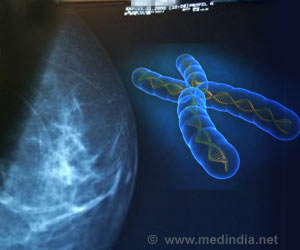From a study involving thousands of postmenopausal women, new findings suggest that women who develop invasive breast cancer may benefit from taking supplements containing both

"Our study offers tentative but intriguing evidence that multivitamin/mineral supplements may help older women who develop invasive breast cancer survive their disease," said Sylvia Wassertheil-Smoller, Ph.D., lead author of the study and distinguished university professor emerita of epidemiology and population health at Albert Einstein College of Medicine of Yeshiva University.
Multivitamin/mineral supplements are the most commonly consumed dietary supplements among U.S. adults. They usually contain 20-30 vitamins and minerals, often at levels of 100 percent of U.S. Recommended Dietary Allowances or less, and the usual label recommendation is to take them daily.
The research was conducted as part of the Women's Health Initiative Clinical Trials and the Women's Health Initiative (WHI) Observational Study. Combined, the two studies include data from 161,608 postmenopausal women ages 50 to 79 when they first joined the study. These women were enrolled at 40 clinical centers throughout the United States during the years 1993-1998.
The current study focused on 7,728 participants who were diagnosed with invasive breast cancer during the WHI and were followed for an average of seven years after their diagnosis. Invasive breast cancer is defined as cancer that has spread outside the membrane of the milk glands or ducts and into the breast tissue. Two common types of invasive breast cancer are invasive ductal carcinoma and infiltrating lobular carcinoma.
After enrolling in the WHI and during repeated follow-up visits, all participants provided extensive information about their health including whether or not they had taken a multivitamin/mineral supplement at least once a week during the prior two weeks.
"Controlling for these other factors strengthens our confidence that the association we observed – between taking multivitamin/mineral supplements and lowering breast-cancer mortality risk among postmenopausal women with invasive breast cancer – is a real one," said Dr. Wassertheil-Smoller, who also holds the Dorothy and William Manealoff Foundation and Molly Rosen Chair in Social Medicine Emerita. "But further studies are needed to confirm whether there truly is a cause-and-effect relationship here. And our findings certainly cannot be generalized to premenopausal women diagnosed with invasive cancer or to other populations of women."
 MEDINDIA
MEDINDIA




 Email
Email










